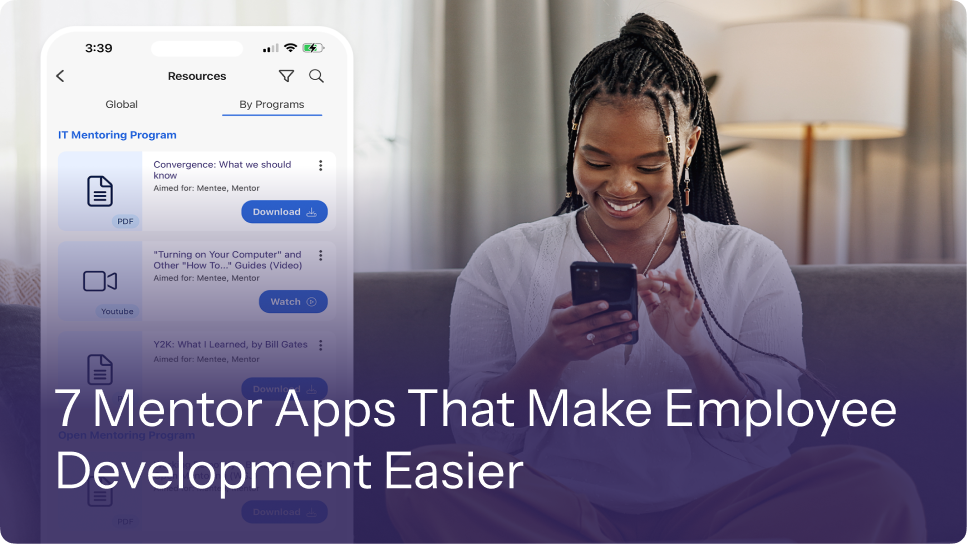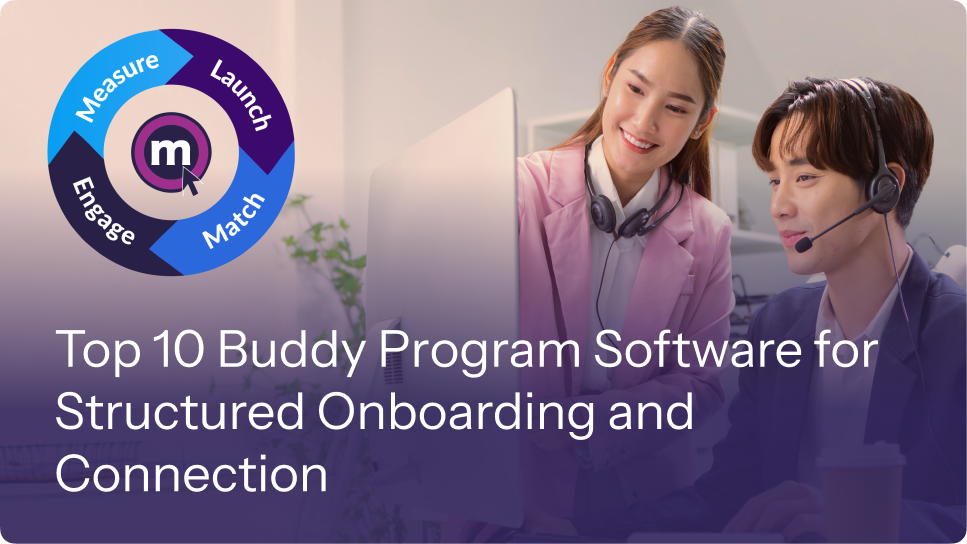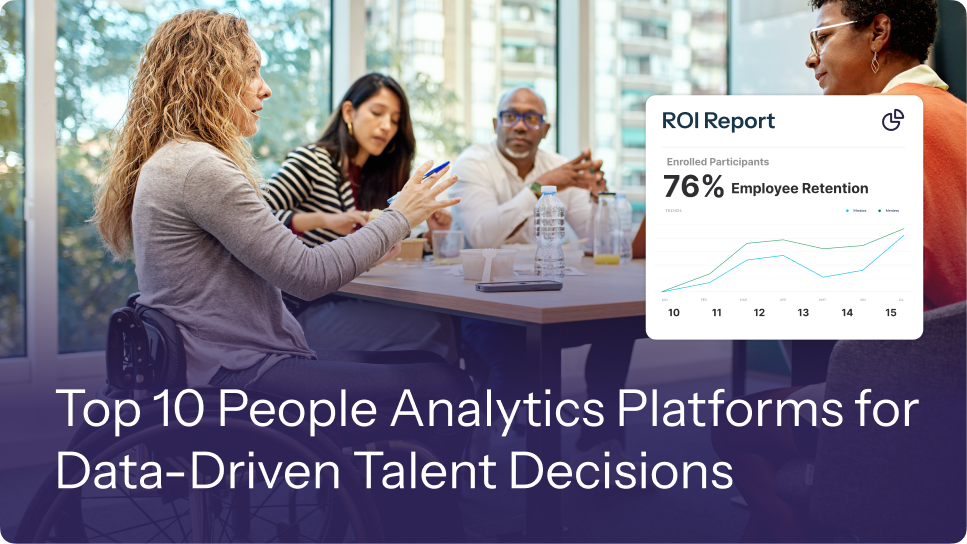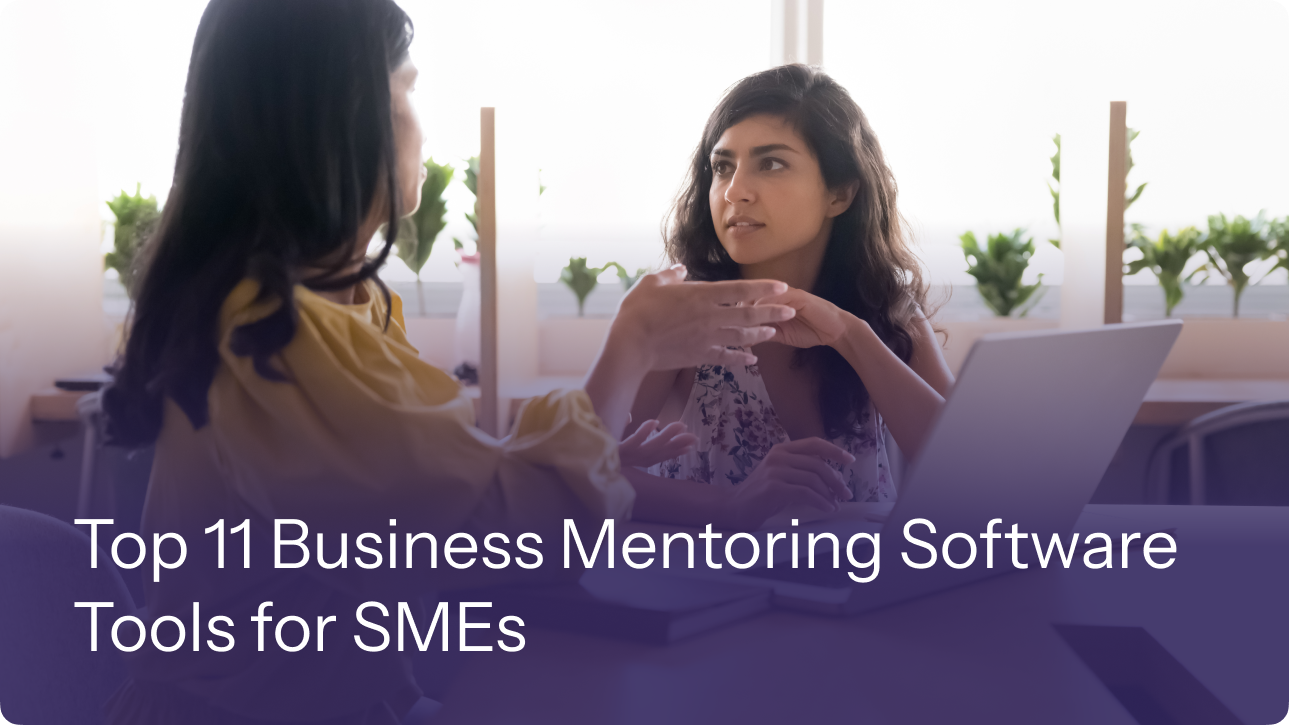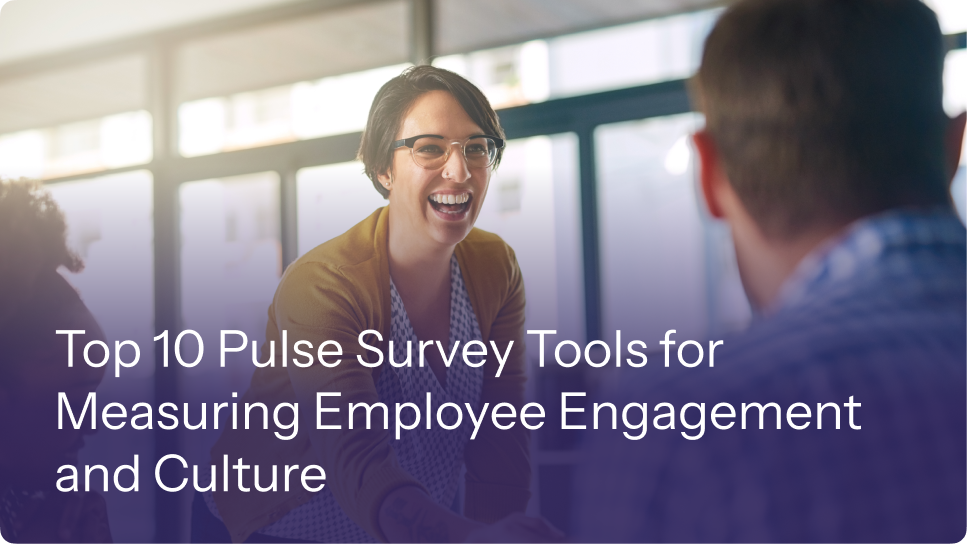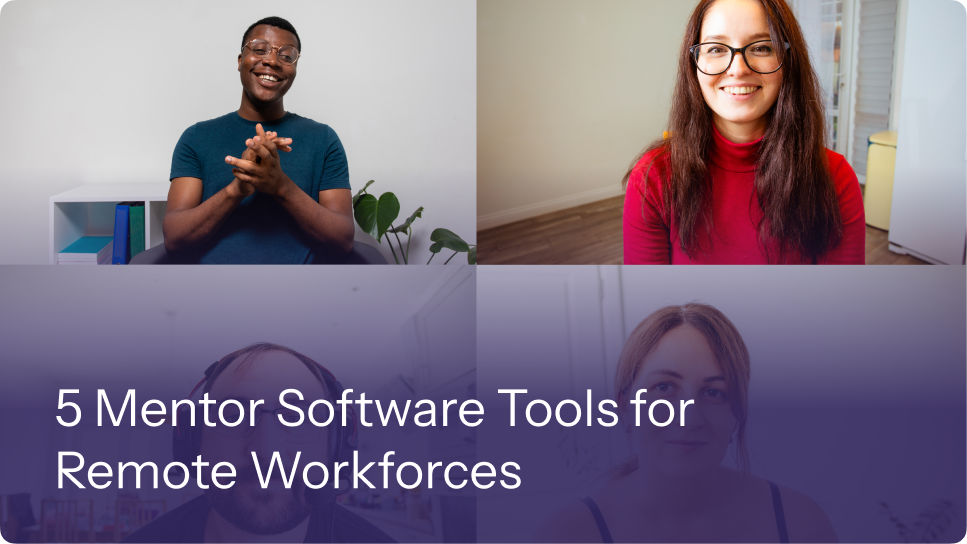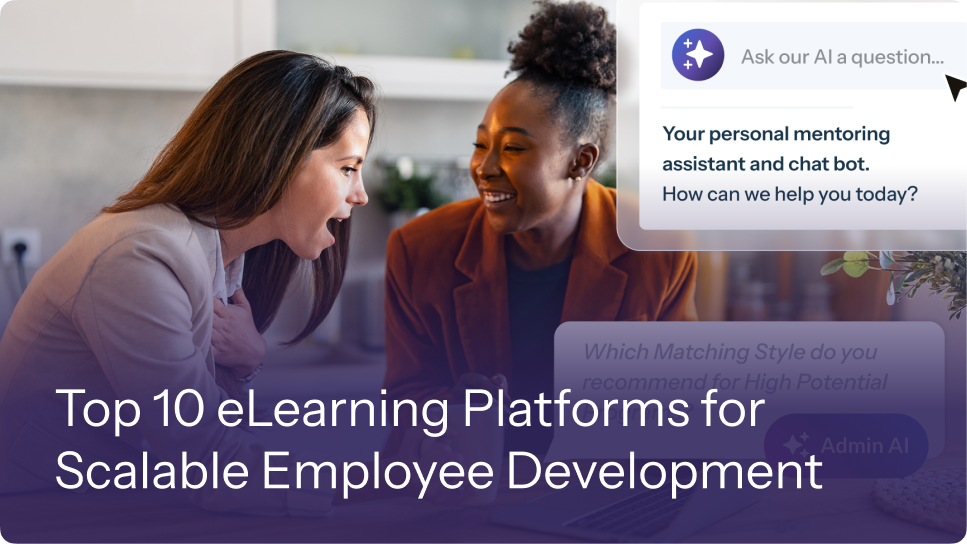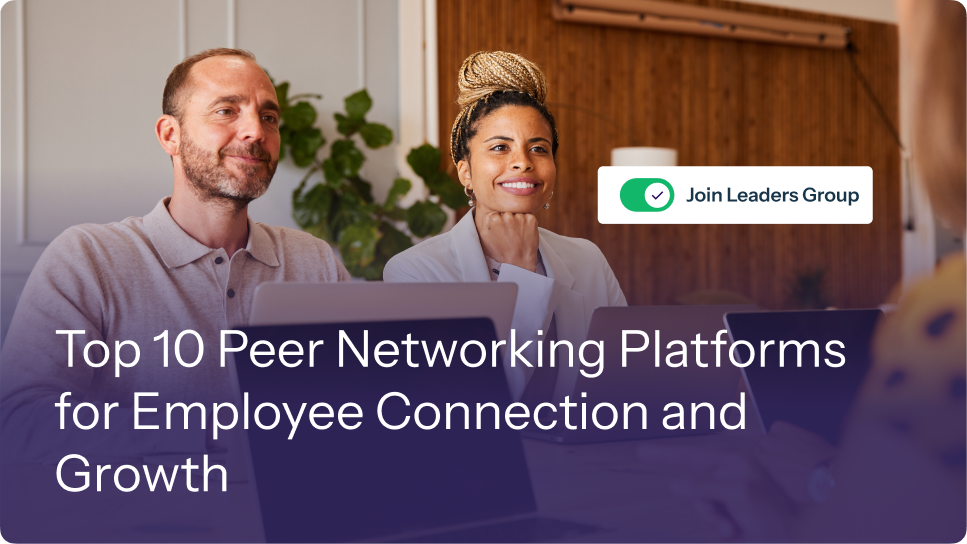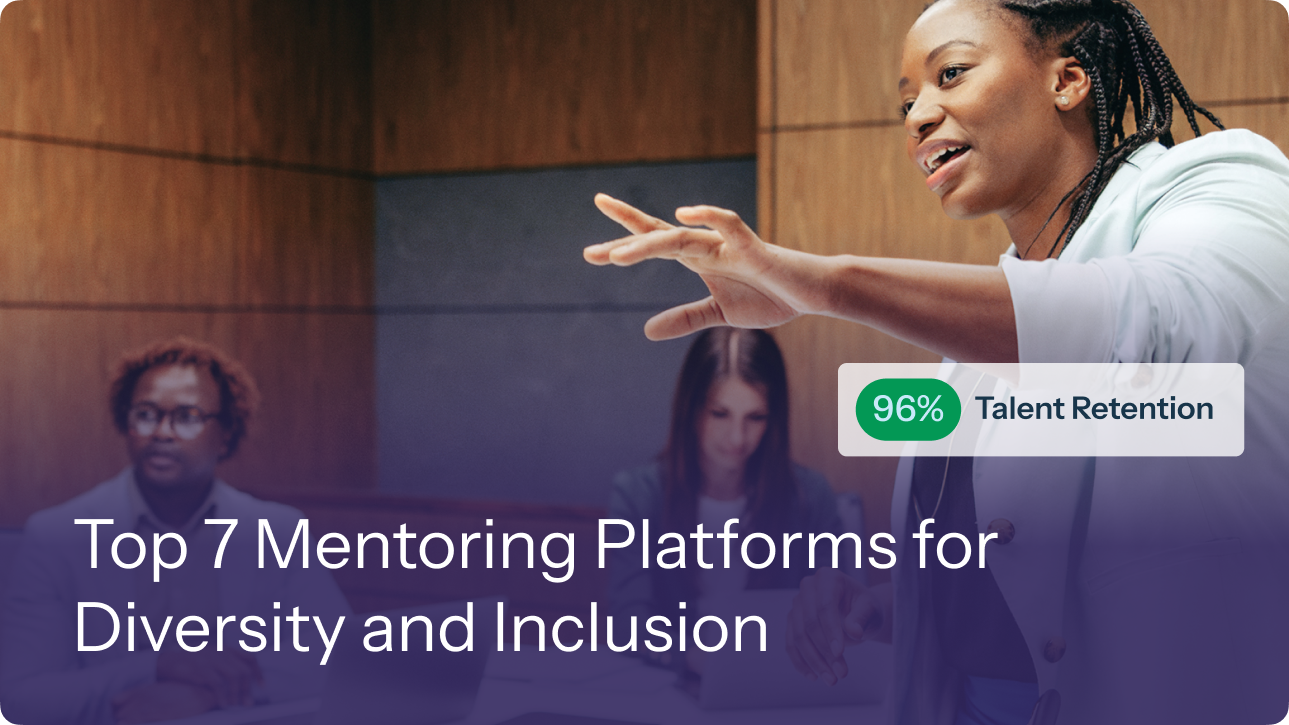Developing employees is one of the most effective ways to increase engagement, strengthen leadership pipelines, and retain talent. Yet many organizations still rely on unstructured, informal mentoring efforts that are difficult to manage or measure.
Mentoring apps change that. They make mentoring programs easier to launch, scale, and evaluate by combining automation, analytics, and guided experiences that connect employees across levels and functions.
According to DeVry University, 97% of employers and 96% of employees agree that upskilling is essential. Even with the best of intentions, it is difficult to do so without proper structured learning. Mentor apps are needed to facilitate proper employee growth and professional development.
The following mentoring apps help organizations simplify employee development plans, reduce administrative work, and show measurable results that matter to business leaders.
What Are Mentoring Apps?
Mentoring apps are digital tools that simplify the design, management, and measurement of mentoring programs. They provide the structure and data leaders need to turn mentoring into a scalable, strategic component of employee development.
For Organizations
From an organizational standpoint, mentoring platforms automate and centralize program management. They eliminate the manual tracking, scheduling, and follow-up work that limits program expansion.
- HR and DEI teams can run multiple programs simultaneously, each tailored to specific development goals such as onboarding, leadership readiness, career development, or DEI advancement.
- Real-time analytics show participation, engagement, and outcomes, helping leaders demonstrate the business value of mentoring.
- Integration with HRIS and learning systems connects mentoring to broader talent strategies.
For Employees
For employees, mentoring apps make development accessible and personalized.
- Participants can easily find mentors aligned with their goals, schedule sessions, and track progress from one central platform.
- Guided templates and milestones help structure conversations and maintain momentum.
- Digital accessibility allows employees in different locations, functions, or work models to build meaningful mentoring relationships.
By combining these organizational and employee benefits, mentoring apps make development scalable, consistent, and measurable—three outcomes essential for modern workforce strategies.
Key Features of Mentoring Apps
Mentoring apps vary in design, but most share core features that make development easier and more measurable.
Smart Matching
AI and data-driven algorithms connect mentors and mentees based on goals, experience, and skills, improving match quality and satisfaction.
Program Automation
Scheduling, reminders, and communication happen automatically, saving hours of manual work per program cycle.
Progress and Engagement Tracking
Built-in dashboards show participation levels, session frequency, and progress toward goals.
Integrations
Mentoring apps connect with HRIS, LMS, and collaboration tools, making participation frictionless.
ROI Measurement
Analytics demonstrate the business impact of mentoring through metrics tied to retention, engagement, and leadership readiness.
7 Best Mentoring Apps for Employee Development
1. MentorcliQ
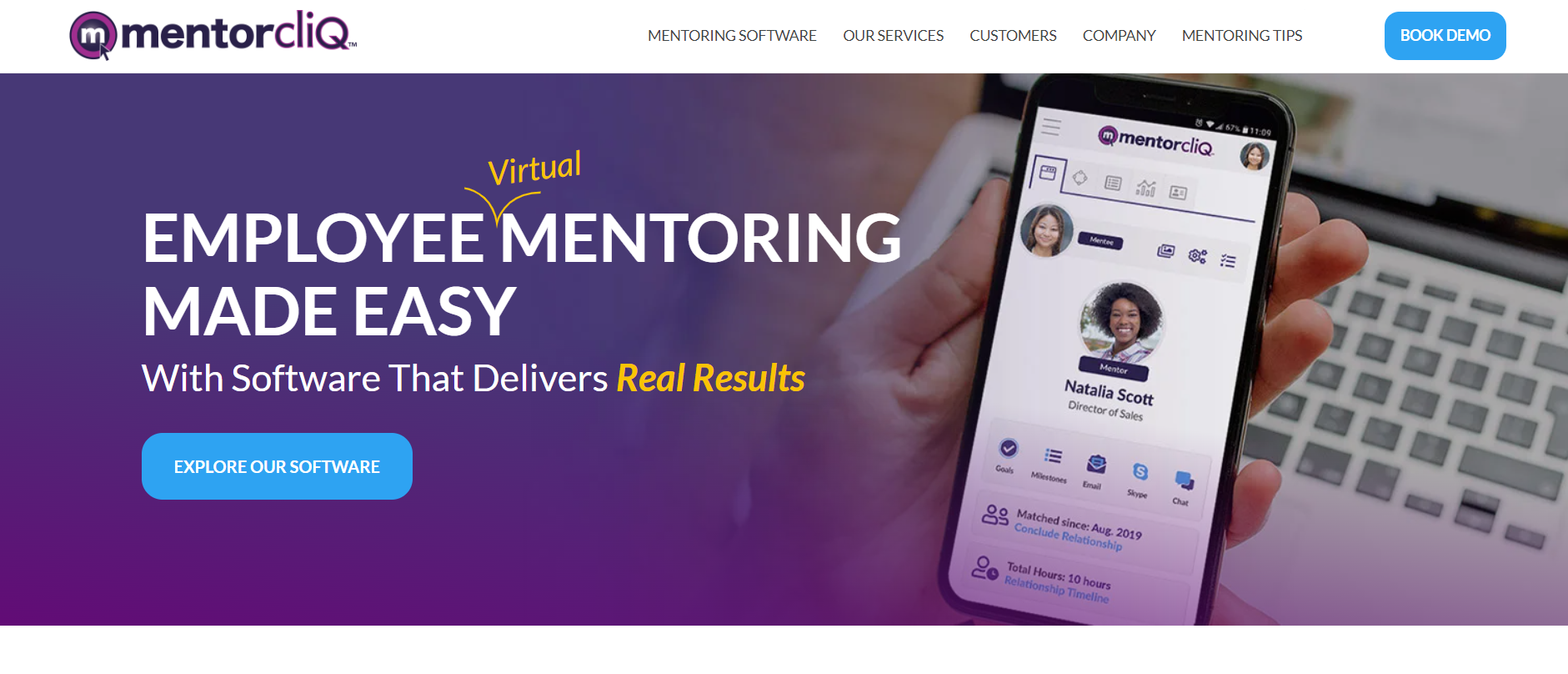
MentorcliQ is the industry-leading mentoring software platform trusted by global enterprises. It supports structured, scalable programs that improve retention, engagement, and leadership development through intelligent matching, automation, and analytics.
Key Features:
- AI-powered matching and tracking
- Robust reporting dashboards with ROI insights
- Seamless HRIS and SSO integration
- Connected ERG management through CommunityCliQ
Best for: Enterprises seeking scalable, measurable mentoring solutions that link directly to business outcomes.
2. Together Platform
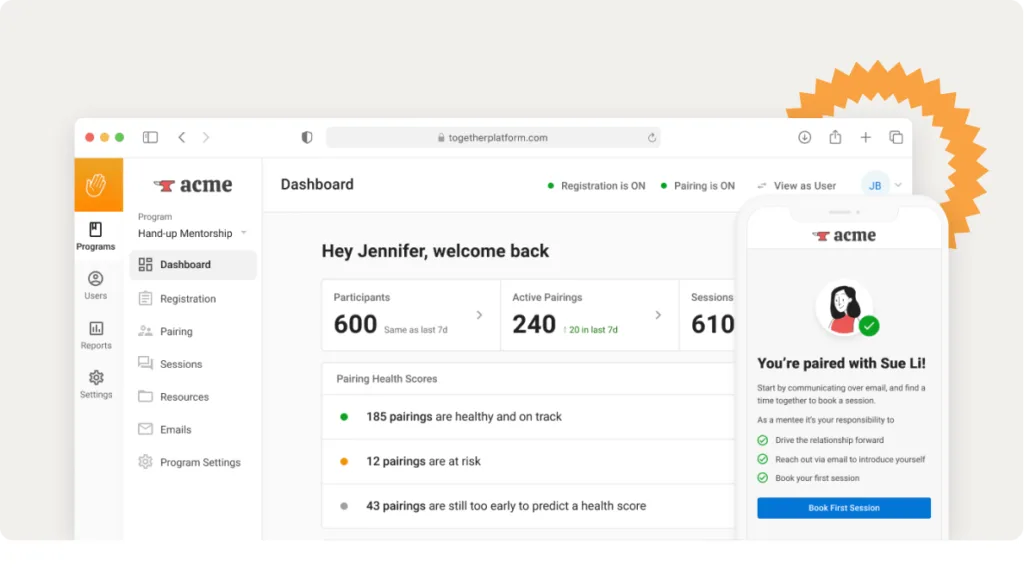
Together simplifies mentoring program design and management. It provides guided workflows for pairing participants, managing sessions, and measuring engagement.
Key Features:
- Profile-based matching and onboarding
- Automated scheduling and reminders
- Engagement dashboards
Best for: Mid-sized organizations implementing structured mentoring programs for the first time.
3. Torch

Torch combines mentoring and coaching to accelerate leadership development. Its behavioral data and analytics help companies connect development to measurable performance outcomes.
Key Features:
- Mentoring and coaching workflows
- 360° feedback and performance data integration
- Leadership analytics
Best for: Organizations investing in leadership growth and performance improvement.
4. PushFar
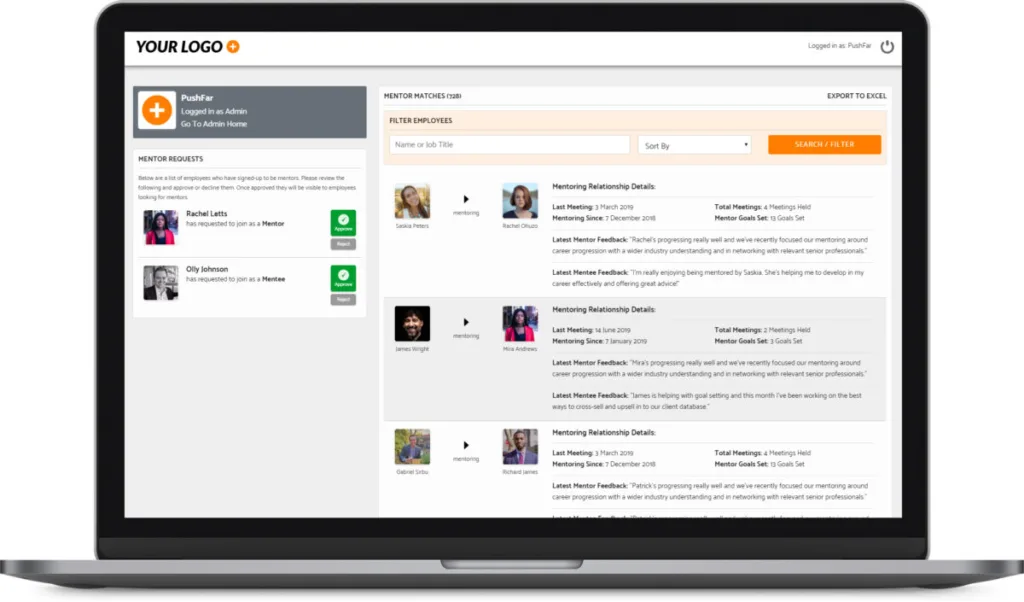
PushFar offers a flexible platform for both employee-led and administrator-managed programs. Its straightforward design supports quick implementation and self-directed development.
Key Features:
- Mentor/mentee self-selection
- Goal-setting and progress tracking
- Automated reminders and notifications
Best for: Small to mid-sized businesses seeking an easy, low-cost mentoring solution.
5. Mentorloop
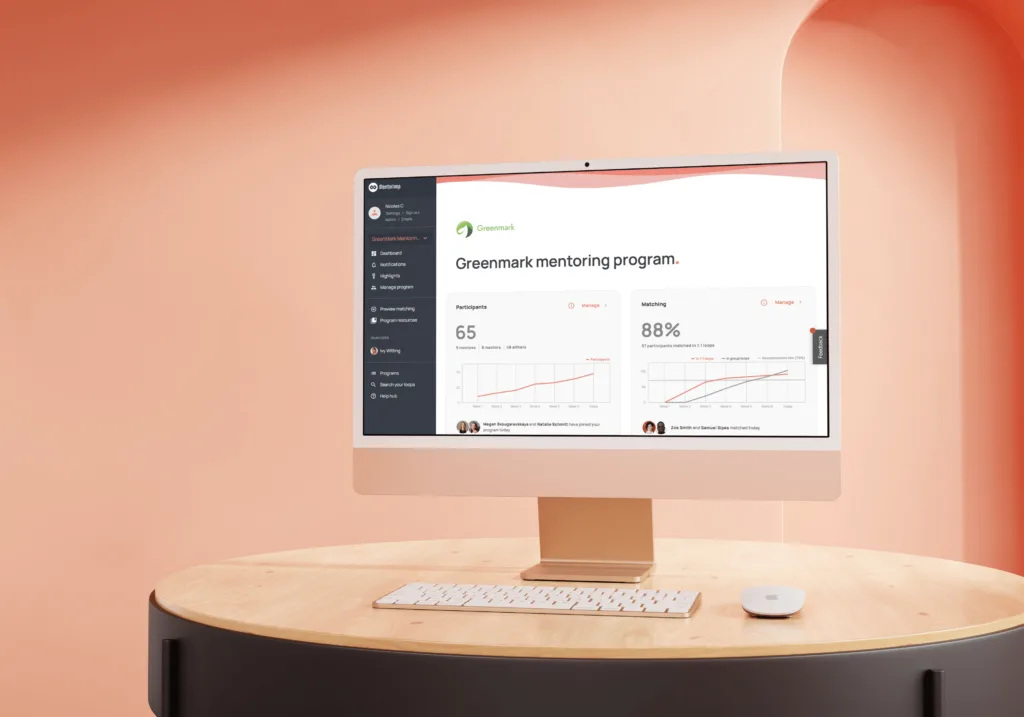
Mentorloop helps companies scale mentoring with automation and built-in communication tools. It provides insight into engagement and satisfaction throughout each program cycle.
Key Features:
- Automated program management
- Communication and feedback tools
- Engagement and sentiment reporting
Best for: Organizations running multiple mentoring cohorts or global programs.
6. Guider
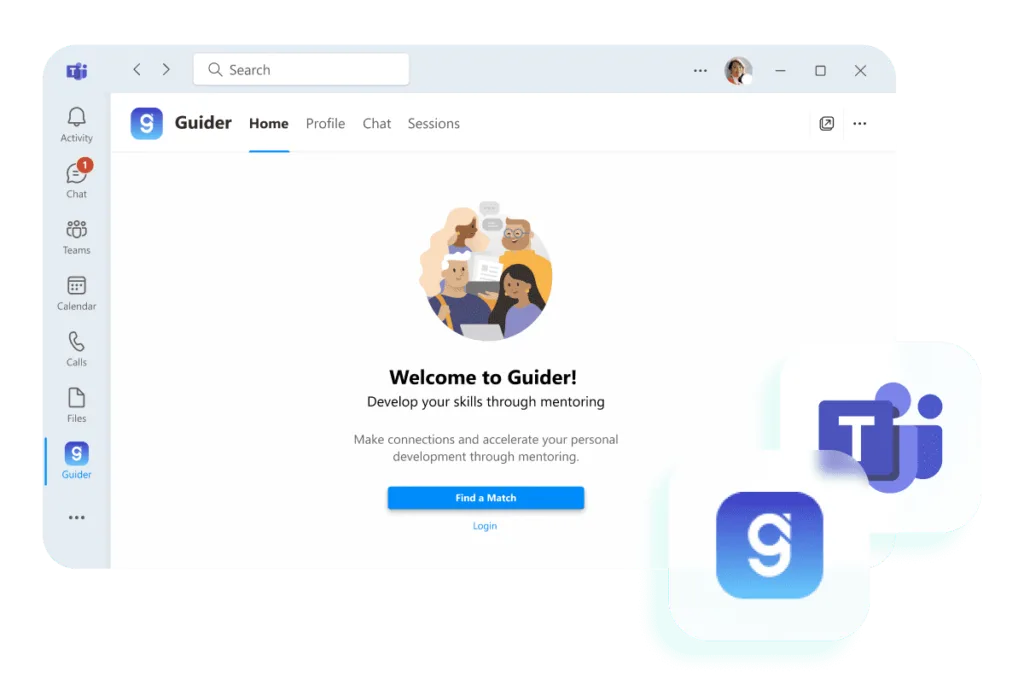
Guider focuses on accessible, inclusive employee development through mentoring. Its simple interface and smart pairing tools help participants start strong and stay engaged.
Key Features:
- AI-driven matching
- Analytics for engagement and progress
- Easy-to-use participant dashboards
Best for: Organizations prioritizing DEI and equitable access to development opportunities.
7. Art of Mentoring
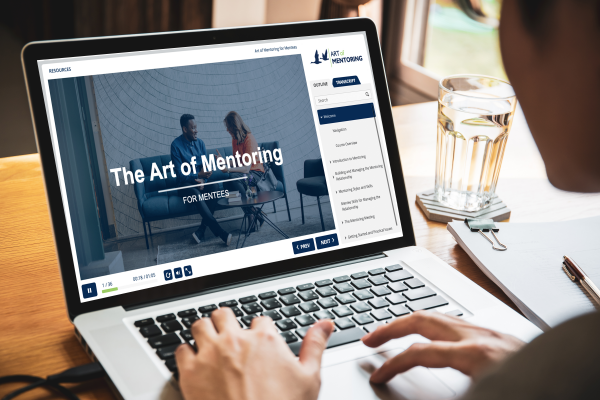
Art of Mentoring combines evidence-based frameworks with digital program tools. It supports structured, guided programs designed for measurable developmental outcomes.
Key Features:
- Program design templates and guidance
- Progress tracking and evaluation tools
- Mobile-friendly participant experience
Best for: Organizations seeking structured, research-informed mentoring frameworks.
Benefits of Mentoring Apps for Employee Development
Mentoring has long been recognized as one of the most effective ways to build engagement, strengthen leadership pipelines, and increase retention. However, traditional mentoring models—often built around informal connections or small pilot programs—rarely deliver consistent, measurable impact across an organization.
Mentoring apps change that dynamic. By digitizing and automating key processes, these platforms make mentoring scalable, structured, and accountable. They create a single system where HR, DEI, and learning teams can manage programs, monitor participation, and connect outcomes to business goals.
Below are the most important benefits organizations experience when they use mentoring apps to support employee development.
1. Higher Employee Retention and Engagement
Employees with mentors are significantly more likely to stay and thrive. Structured mentoring builds connection and purpose—two leading drivers of engagement. Organizations using digital mentoring solutions see stronger retention, particularly among early-career employees and under-represented groups.
2. Stronger Leadership Pipelines
Mentoring prepares high-potential employees for leadership roles by connecting them with senior leaders and subject matter experts. Apps make it possible to identify talent trends across programs, creating data-informed succession plans.
3. Expanded DEI and Belonging Impact
Digital mentoring broadens access to development opportunities. By connecting employees across roles, departments, and demographics, mentoring apps help build equity into career growth and strengthen inclusion outcomes.
4. Greater Scalability and Efficiency
Automation reduces the time and effort needed to run programs. HR and DEI leaders can easily scale from one pilot group to hundreds or thousands of participants without adding administrative overhead.
5. Measurable ROI and Data Visibility
Built-in analytics connect mentoring to measurable business outcomes such as retention, engagement, and performance improvement. Leaders can share tangible results with executive stakeholders to demonstrate impact.
6. Consistent Development Experience
Mentoring apps bring structure and accountability to mentoring relationships. Participants receive reminders, progress prompts, and learning support that make every mentoring experience consistent and impactful.
7. Enhanced Organizational Culture
When mentoring is integrated through technology, it becomes part of everyday culture. Employees engage across functions, share knowledge, and build stronger professional networks that reinforce belonging and collaboration.
Build a Scalable Mentoring Culture
Mentoring apps are more than digital tools—they represent a shift in how organizations think about development. By making mentoring structured, measurable, and accessible, these platforms align personal growth with business performance.
For HR, DEI, and learning leaders, mentoring apps deliver what traditional mentoring cannot: scalability, data, and visibility. They transform mentoring from a side initiative into a strategic system that strengthens retention, engagement, and leadership readiness across the workforce.
For employees, mentoring apps offer a clear pathway to growth. They make it easy to connect with mentors, build confidence, and gain the support needed to advance within the organization.
As hybrid and global work models continue to redefine employee experience, mentoring apps provide a consistent, connected way to keep career and leadership growth on the up—no matter where an employee might be working from.
Book a Demo with MentorcliQ to see how your organization can build scalable, data-driven mentoring programs that deliver measurable results in engagement, retention, and performance.



